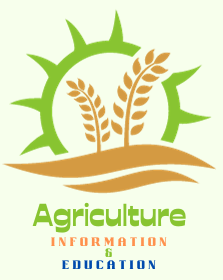Introduction
Sustainable development, the practice of meeting the needs of the present without compromising the ability of future generations to meet their own needs, is a global imperative in the face of environmental challenges. Organic farming stands as a beacon of sustainable agriculture, offering a holistic approach that harmonizes ecological, social, and economic aspects. In this comprehensive exploration, we delve into the ways in which organic farming promotes sustainable development, fostering environmental stewardship, social responsibility, and economic resilience.
Soil Health: Nurturing the Earth’s Foundation
Central to organic farming’s sustainable ethos is its emphasis on soil health. Organic practices prioritize the use of natural fertilizers, such as compost and manure, while shunning synthetic chemicals. These natural inputs enrich the soil with essential nutrients, enhancing fertility and structure. Healthy soil, in turn, promotes water retention, reduces erosion, and provides a conducive environment for plant growth. As organic farmers embrace techniques like crop rotation and cover cropping, they contribute to the regeneration of soil, ensuring its sustained productivity.
Biodiversity Conservation: Cultivating Ecological Harmony
One of the defining features of organic farming is the avoidance of synthetic pesticides and genetically modified organisms (GMOs). This commitment contributes significantly to biodiversity conservation. By eschewing chemical interventions that can harm non-target organisms, organic farmers create an environment that fosters a diverse range of plants, insects, birds, and microorganisms. This biodiversity is crucial for the resilience of ecosystems, supporting natural pest control, pollination, and overall ecosystem health.
Water Conservation: Mitigating Scarcity Through Conscious Farming
Water scarcity is a pressing global issue, and organic farming addresses this challenge through water-conscious practices. Techniques such as mulching and cover cropping help minimize water runoff and improve water retention in the soil. The organic approach encourages the development of soil structures that enhance water-holding capacity, mitigating the impact of drought and promoting more efficient water use. By reducing dependence on water-intensive irrigation practices, organic farming aligns with the principles of sustainable water management.
Reduced Chemical Inputs: Safeguarding Ecosystems and Human Health
The avoidance or minimal use of synthetic pesticides and chemical fertilizers is a cornerstone of organic farming. This not only reduces the risk of soil and water contamination but also protects the health of farmworkers and nearby communities. The negative externalities associated with chemical agriculture, such as pesticide drift and water pollution, are significantly diminished in organic farming systems. Through a commitment to natural inputs and biological pest control, organic farmers contribute to a safer and healthier environment for all.
Climate Change Mitigation: Harnessing Agriculture for Carbon Sequestration
As the global community grapples with the impacts of climate change, organic farming emerges as a proactive contributor to climate change mitigation. Many organic farming practices align with agroecological principles that enhance carbon sequestration in the soil. Cover cropping, agroforestry, and reduced tillage are techniques employed by organic farmers to increase soil organic carbon levels, helping to offset carbon dioxide emissions. By harnessing agriculture as a tool for carbon sequestration, organic farming plays a vital role in mitigating climate change.
Energy Efficiency: From Traditional Wisdom to Sustainable Practices
Organic farming often relies on more traditional and low-input methods, reducing the overall energy consumption associated with agriculture. While conventional agriculture leans heavily on mechanization and energy-intensive synthetic inputs, organic farmers prioritize manual labor, green manure, and organic inputs. This not only reduces the carbon footprint of farming operations but also aligns with the principles of energy efficiency and sustainability.
Community Development: Sowing Seeds of Social Responsibility
Beyond its ecological benefits, organic farming contributes to community development. By providing employment opportunities, supporting local markets, and fostering a sense of shared responsibility, organic farming becomes a catalyst for positive social change. Additionally, organic farming often encourages the use of traditional and indigenous knowledge, creating a bridge between generations and preserving cultural sustainability. Through community-supported agriculture and farmers’ markets, organic farming strengthens the social fabric, connecting consumers directly with the source of their food.
Resilience to Pests and Diseases: Nature’s Defense Mechanism
The emphasis on biodiversity in organic farming systems serves as a natural defense mechanism against pests and diseases. Unlike monoculture, where large expanses of a single crop are vulnerable to outbreaks, organic farms typically feature a variety of crops. This diversity disrupts the life cycles of pests and creates a more resilient agricultural ecosystem. The reduced reliance on chemical interventions not only protects beneficial insects and organisms but also promotes a balanced and dynamic relationship between crops and their natural surroundings.
Certification Standards: Ensuring Accountability and Transparency
Organic farming is not just a concept; it is a rigorously regulated and certified practice. Certification standards set by organizations such as the USDA Organic Program or the European Union’s Organic Regulation ensure that organic farmers adhere to specific environmental and social criteria. These standards encompass aspects such as soil health, biodiversity conservation, and the avoidance of synthetic inputs. By adhering to these stringent criteria, organic farmers demonstrate their commitment to sustainable practices, providing consumers with confidence in the environmental and ethical integrity of their products.
Consumer Awareness: The Power of Informed Choices
The growth of the organic market is, in part, driven by consumers who are increasingly environmentally conscious. Choosing organic products becomes an act of environmental stewardship, as consumers opt for goods produced without synthetic chemicals and harmful practices. The demand for organic products incentivizes more farmers to transition to organic methods, creating a positive feedback loop that expands the reach and impact of sustainable agriculture. Consumer awareness and choice, therefore, play a pivotal role in driving the shift towards more sustainable and ecologically responsible farming practices.
Conclusion
In conclusion, organic farming stands as a beacon of hope in the quest for sustainable development. By embracing practices that prioritize soil health, biodiversity conservation, water efficiency, and reduced chemical inputs, organic farmers create a blueprint for a regenerative and resilient agriculture. The holistic approach of organic farming extends beyond ecological considerations to encompass social and economic dimensions, contributing to community development, resilience, and transparency. As consumers increasingly recognize the importance of their choices, organic farming not only becomes a practical solution to pressing environmental challenges but also a powerful agent of positive change in the global food system. Through the integration of ecological principles and social responsibility, organic farming exemplifies a path towards a more sustainable and resilient future.

